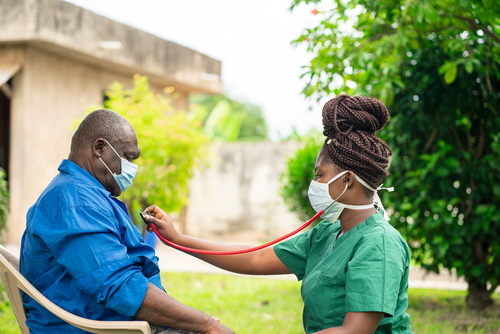New Jersey limits nursing home profits to boost quality of care; New York and Massachusetts are also implementing accountability measures.
New Jersey is one of three states to set requirements on how nursing homes spend the payments they receive from government programs and residents, says an article on fortune.com. Set in motion by the staffing and infection control issues exposed by the impact of the pandemic on nursing homes, New Jersey, New York, and Massachusetts have set mandates that seek to improve the quality of care elderly residents receive by directing how funds are appropriated. These mandates, which will go into effect next year, will dictate how much must be spent on direct care and will limit how much revenue can be used by homes for executive salaries, administrative costs, and profits. Homes that go over these set limits must pay back the difference to the state or have that amount deducted from future payments.
As New Jersey limits nursing home profits to boost quality of care, there are positive and negative reactions.
Proponents of New Jersey’s mandate, like 1199SEIU executive president Molly Silva, applaud the efforts toward setting a focus on patient care. “Nursing homes are primarily funded by public tax dollars, Medicaid, or Medicare—and the public has a reason to care about how our dollars are being spent,” said Silva, who backed the legislation in New York and New Jersey.
Critics of the mandate, like Health Care Association of New Jersey President and CEO Andrew Aronson, believe the move will backfire. “By trying to force providers to put more money into direct care, you’re creating a disincentive for people to invest in their buildings,” said Aronson, “which is going to drive the quality down.”
While New York and Massachusetts require that a percentage of total revenue be spent on resident care (70% and 75% respectively for New York and Massachusetts nursing facilities), New Jersey has yet to determine if its requirement (90% toward patient care) will come from total revenue or only from Medicaid funding. Aronson argues that Medicaid does not pay enough to cover the cost of care, which currently amounts to a shortfall of $40 a day per resident in New Jersey. “Ninety percent of facilities are losing money,” said Aronson.
According to Fortune, all three states promise Medicaid payment increases to homes that remain in compliance with the laws.
Beyond the issue of which funds will count as revenue to be used toward direct care, a few other matters remain in question, including how regulators will define what constitutes direct care and how it will determine the accuracy of reports.
Fighting for the Rights of Your Loved One
It’s important to ensure that the Philadelphia/PA or NJ nursing home where your loved one lives avoids any poor care that results in nursing home neglect or abuse [https://www.thenursinghomeattorneys.com/nursing-home-abuse-and-neglect/]. Pennsylvania and New Jersey nursing homes are required to meet health and safety standards requirements and to ensure the physical, mental, and psycho/social well-being of their residents. Should you have concerns about the quality of care in a Pennsylvania or New Jersey nursing home, or if you suspect neglect, abuse, or fraud has occurred at the Pennsylvania, Philadelphia, or New Jersey nursing home where your loved one lives, please contact nursing home abuse attorney Brian P. Murphy to discover your legal rights and options.







